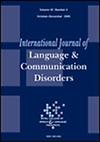Be Cognative: Cognates in the Rehabilitation of Cochlear Implant Users with German as a Second Language – A Computer-Based Experiment
Abstract
Background
The rehabilitation of people with cochlear implants (PwCI) who speak more than one language poses significant challenges to healthcare systems, particularly in countries experiencing global migration. This study investigates the potential of cognates (CO) to enhance speech and language therapy for PwCI with German as a second language. A historically underserved group in rehabilitation contexts, speech and language therapy for PwCI speaking German as a second language is often affected by language barriers.
Aim
This study aimed to investigate whether PwCI with bi- or multilingual backgrounds show an increased positive selection rate and a reduced latency in understanding auditorily presented CO compared to Non-cognates (NCO), to identify a potential speech and language therapy approach for PwCI in the context of CI rehabilitation. In addition, the study investigated a possible correlation between the level of proficiency in the second language of PwCI and the frequency at which the second language is used in daily life with the selection of CO.
Method
A computer-based experiment was conducted using the open-source software PsychoPy. The experiment involved 48 adult multilingual PwCI undergoing outpatient CI rehabilitation. Using a crossover design, participants completed auditory tasks involving CO and NCO at single-word and sentence levels.
Results
The study involved 48 multilingual PwCI with an average age of 55.7 years who received cochlear implants 66 months previously, on average. Participants spoke languages including Polish, Russian and Turkish, reflecting the linguistic diversity within the German population. The PwCI showed better performance in selecting and processing CO compared to NCO at both the single-word and sentence levels, with significantly faster response times for CO. Daily use of German did not significantly affect CO selection speed at the single-word level, but those who used German more often performed better with CO in sentences.
Discussion and Conclusion
The results suggest that CO are processed faster and more accurately than NCO by multilingual PwCI. This finding highlights the potential of CO in auditory training and speech and language therapy, which is consistent with the existing literature on normal-hearing individuals. CO can enhance comprehension exercises, which are crucial for speech and language therapy, and address the language barriers faced by multilingual PwCI and speech and language therapists. By incorporating exercises focused on CO into therapy, language and comprehension skills essential for multilingual PwCI could be enhanced, potentially improving their hearing abilities.
WHAT THIS PAPER ADDS
- Prior to our study, it was known that cognate-based interventions in speech therapy for people with normal hearing have shown positive results. However, there has been limited research on the use of cognates in cochlear implant rehabilitation. This study aims to fill existing knowledge gaps and provide new insights that are crucial for optimising hearing rehabilitation strategies in cochlear implant recipients with a multilingual background.
- As a result of this study, we received indications that cognate-focused exercises can improve word and sentence processing in cochlear implant recipients with multilingual backgrounds. These findings highlight the potential of cognates to improve speech and language therapy outcomes. They open up new opportunities for optimising rehabilitation strategies in this population. These findings could lead to tailored interventions that improve comprehension skills for multilingual cochlear implant users.
- The study has clear clinical implications. Integrating cognates into speech and language therapy for multilingual people with cochlear implants may improve their auditory training outcomes. This approach may improve their language processing and communication skills, potentially leading to more effective and personalised rehabilitation strategies.


 求助内容:
求助内容: 应助结果提醒方式:
应助结果提醒方式:


